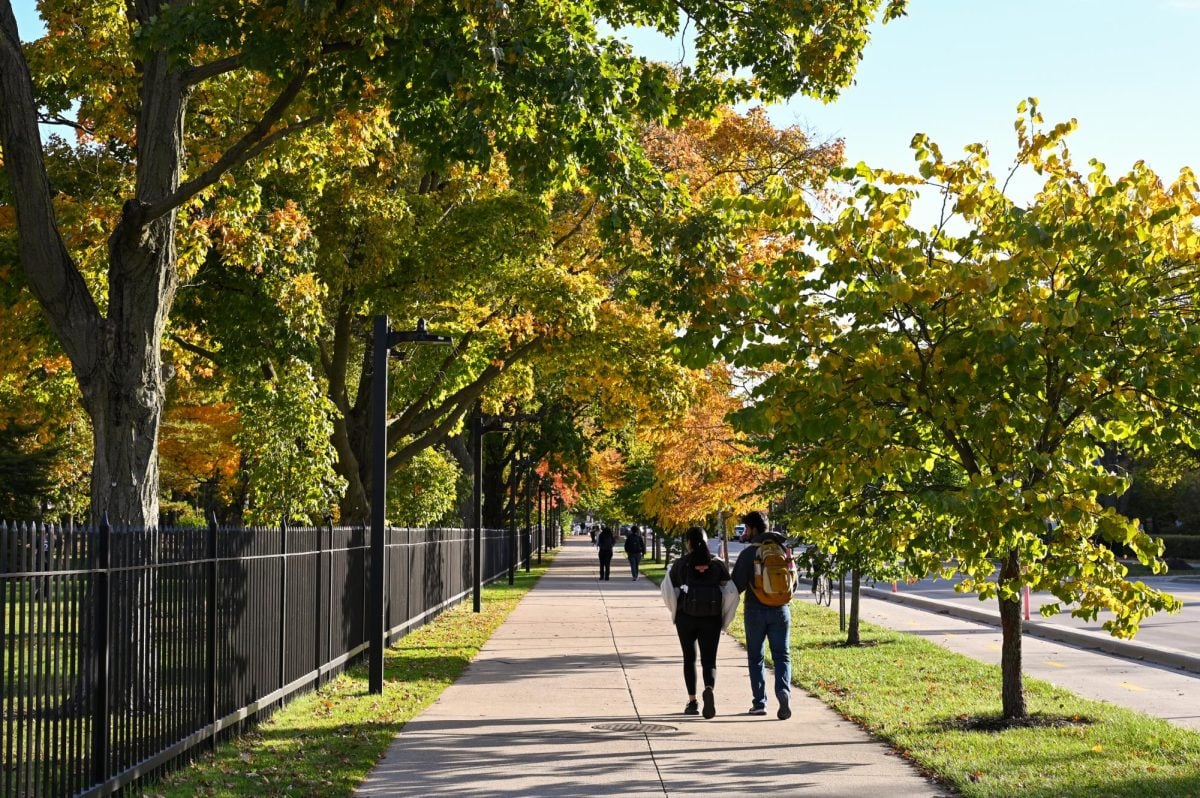The reconstituted Advisory Committee on Investment Responsibility opened applications this fall to skepticism from students and faculty about the committee’s recusal policy for members with conflicts of interest.
The committee, reestablished as part of the agreement to end the encampment on Deering Meadow, advises the Board of Trustees on investment concerns concerning the NU community.
University President Michael Schill will have final approval over all the committee’s members — which will include students, alumni, faculty and staff members, including Chief Investment Officer Amy Falls.
In an Oct. 10 interview with The Daily, Schill said administrators expect to launch the committee by the end of the calendar year. The committee aims to hold its first public meeting in January, according to its website.
In a news release, the University invited any member of the NU community to apply to the committee by Nov. 27. The release also said committee members must serve as “independent evaluators” of issues presented to the committee or withdraw from decisions.
“Members must recuse themselves from decisions in which they may have a conflict, such as employment or research support by an industry in question, or a leadership role in an advocacy or other affinity group that may be impacted by the proposed actions,” the release read.
When asked if students actively involved in Jewish, Muslim or Arab affinity groups or pro-Israel and pro-Palestine advocacy groups would be disqualified from the committee’s selection, University spokesperson Hilary Hurd Anyaso said membership in affinity groups would not disqualify an individual’s application.
The University did not respond to multiple requests for clarification on who would determine if an ACIR member has a personal conflict with a proposal and how that decision would be made.
“My impression is that the recusal policy is just not that well thought out,” said Art History Prof. Rebecca Zorach, who serves on the executive and social responsibility committee of the Faculty Senate.
Zorach said she is concerned the recusal policy will prevent the committee from advocating for any changes to the University’s current investment strategy given the nature of who will be appointed to the committee.
SESP sophomore Shepard Lee Williams said he is concerned the recusal policy will affect the diversity of voices on the committee.
“A lot of affinity groups are based off of things that people cannot change about themselves,” Williams said. “(The recusal policy) will bar them from being able to engage with that facet of their identity. That’s the only way I can actually see this be used, especially considering that there is little to no transparency when it comes to NU investments.”
Zorach added that the committee lacks transparency on how it will function and is concerned about what she describes as a non-democratic selection process of appointment.
She said the student and faculty committee members should instead be elected from their respective electing bodies.
When the ACIR was first established in 2016, the Associated Student Government nominated two undergraduate representatives and the Graduate Leadership Advisory Council nominated two graduate representatives.
While the ACIR used to hold space for undergraduate students “engaged in demonstrable popular advocacy for socially responsible investment policies,” these students would likely have to recuse themselves from some investment deliberations under the new policy.
A previous ACIR student representative, who asked to remain anonymous for fear of retribution from their employer, said the committee originated from demands from student advocacy and affinity groups.
Without the ASG nomination process, they are concerned about the committee turning into an “echo chamber,” they said.
“This committee came from those marginalized communities who did not want the University to continue to invest in this practice of death,” they said. “The fact that I was able to have relationships with folks, I was able to bring up concerns or issues that were relevant in ways that somebody else who wasn’t wasn’t able to.”
Zorach said the new restrictions have an “inherent bias” toward those who favor the current University investment strategy, rather than representatives who bring up concerns with the “status quo.”
A Middle Eastern and North African student, who asked to remain anonymous for fear of retribution from the University, the committee’s responsibility extends beyond maximizing returns on investments.
The student said if the University decides to hold an impartial stance on wars, the committee should uphold that standard to all conflicts around the world.
“It’s not all about the financial aspect of it, and whether or not we’re literate enough in these topics to understand what will make the University the most money,” the student said. “I think that’s exactly what we should be in there”
A faculty member of NU’s chapter of Educators for Justice in Palestine, who asked to remain anonymous for fear of University retribution, said she believes no committee member should have to recuse themselves.
She said the wording of the recusal policy targeted student advocacy more than any other group on the committee. She added there is no such thing as ultimate neutrality because everyone has a particular interest even if that interest is in the status quo.
“The way this committee is set up, being so small and appointed by the president, and every member that is not a student has a longer term than a student, really raises questions about the extent to which discussions will be serious and open to the community,” she said.
Email: [email protected]
Email: [email protected]
X: @kelleylu_
Related Stories:
— Administrators, student demonstrators reach agreement to end encampment on Deering Meadow






